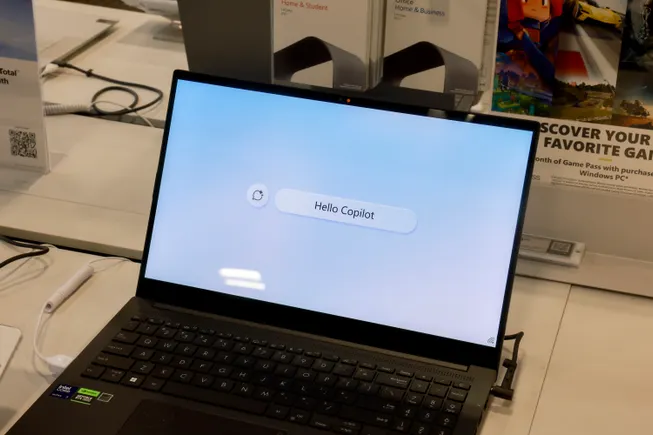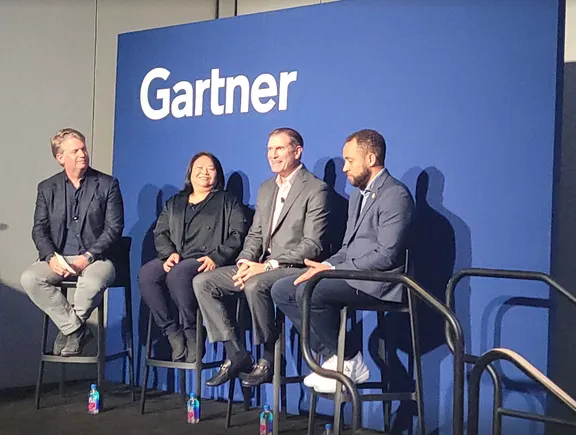Burnout isn’t just “being tired.” It’s not something a weekend off or a tropical getaway can magically erase. And no, your morning coffee isn’t a sustainable coping strategy.
The modern workplace is filled with myths about stress and burnout—ideas that make us believe exhaustion is normal and inevitable. But we’re here to challenge those misconceptions and show you how to actually help tackle burnout for your people in a way that works.
Myth #1: “Burnout Just Means You Need a Vacation”
Vacations help you recharge—but burnout is deeper than needing a break. It’s chronic stress caused by work overload, lack of support, or misalignment with your role. A Deloitte survey found that 77% of professionals have experienced burnout at their current job, with more than half citing more than one occurrence. You can take time off, but if nothing changes when you get back, you’re right back to square one.
To Bust This Myth: Time off won’t fix burnout if the work environment stays the same. The real solution is embedding well-being into daily routines. Short, frequent movement breaks—like stretching, walking, or guided breathing—help regulate stress and improve focus. Mindfulness practices, movement, and setting realistic workload expectations help create a long-term buffer against burnout. Balance isn’t about escaping work—it’s about reshaping how we work.
Myth #2: “If You’re Passionate, You Won’t Burn Out”
Loving what you do doesn’t make you immune to burnout—it can actually make it worse. When you’re passionate about your work, you’re more likely to overcommit, blur work-life boundaries, and ignore warning signs of exhaustion. The World Health Organization classifies burnout as an occupational phenomenon, not a personal failure, meaning even the most dedicated employees can hit a breaking point.
To Bust This Myth: Passion should be paired with boundaries. Prioritizing recovery time, disconnecting from work after hours, and ensuring workload is sustainable are key to maintaining both enthusiasm and well-being. Studies show that even five-minute activity breaks boost energy and prevent mental fatigue. FitOn Health makes it easy to integrate these moments into the workday, so employees can stay passionate without burning out.
Myth #3: “More Hustle = More Success”
The grind culture myth is real, and it’s damaging to long-term performance. Working nonstop leads to decision fatigue, lower-quality work, and long-term health risks. Research from Stanford University shows that productivity drops sharply after 50 hours of work per week, and after 55 hours, additional work offers no measurable benefits. Chronic overwork also leads to poor decision-making, decreased creativity, and long-term health risks.
To Bust This Myth: High performers prioritize recovery as much as effort. Smart work habits—like movement-based breaks and structured downtime—enhance productivity and creativity. Encouraging employees to step away from their desks for a quick mobility session or stretch break keeps energy levels high without sacrificing output.
Myth #4: “Stress Is Just Part of the Job”
Stress happens, but chronic stress shouldn’t be the norm. When unmanaged, chronic stress can lead to anxiety, depression, and even serious health issues. The American Institute of Stress reports that job stress costs U.S. businesses over $300 billion annually due to absenteeism, turnover, and reduced productivity.
To Bust This Myth: There’s a difference between a healthy challenge and harmful stress. Workplaces that promote fitness-based stress relief—like movement challenges, wellness incentives, and guided breathwork—help employees build resilience. A culture that values well-being reduces burnout and fosters healthier, more engaged teams. FitOn Health makes it easy to integrate stress-reducing movement and mindfulness into the workday, so your people feel good while getting things done.
Myth #5: “Self-Care Is Just Bubble Baths and Meditation”
While those things are great, real self-care goes deeper. It’s about making choices that protect your mental and physical health—like moving your body, fueling yourself with good nutrition, and setting boundaries at work. Research indicates engaging in regular exercise has been associated with reduced levels of stress and improved mood. Exercise, proper nutrition, and meaningful social connections play a critical role in reducing stress and preventing burnout.
To Bust This Myth: Self-care needs to be accessible and actionable. Instead of occasional wellness perks, companies should integrate daily movement, stress management, and nutrition resources. FitOn Health provides easy-to-follow fitness breaks, expert-led stretching routines, and practical wellness tools to help employees prioritize health within their workday.
The Bottom Line: Don’t Just Survive—Thrive
Burnout isn’t a personal failure. It’s a sign that your work environment, habits, or expectations need adjusting. Instead of buying into these myths, take action.
With FitOn Health, you get on-demand tools to fight burnout the right way—through mindful movement, stress management, and real support that fits into your employees’ workday.
Because let’s be honest: a vacation might give you a break, but real burnout recovery happens every day.
Ready to break the burnout cycle? Download The Guide to Beating Burnout for actionable strategies to reclaim your energy and well-being.






Leave a Reply